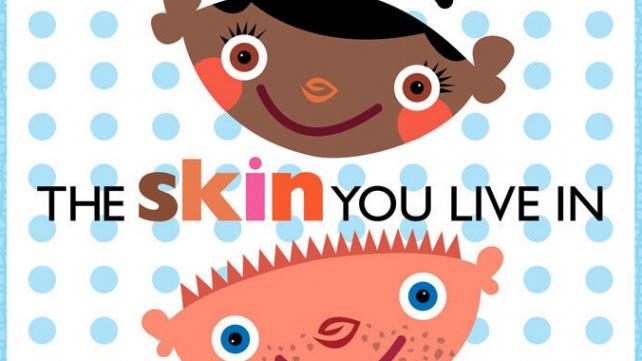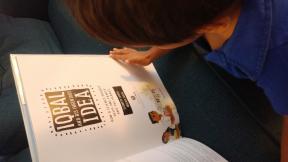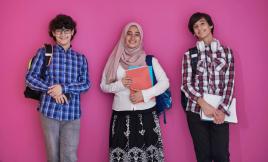
It is important that we are using books in our learning spaces to help our students build their identities and a strong sense of self. Students need to be seen through an asset based lens for all of the intersectional identities and experiences they bring to learning spaces.
The books we share can help them see reflections of themselves and others in their local, broader and global communities. The books we share can also help springboard important conversations around the importance of names, exploring our similarities and differences and disrupting neutrality and colour blindness.
Often, in schools we focus too much on our 'similarities' so that we can 'control' and keep the conversations 'neat'. We need to talk about our differences, not as a deficit but simply as an aspect of our humanity. This can then help us think about how our experiences in the world are different and lead to further conversations that will help students become critically conscious. We need to talk about our skin colours so that we can disrupt ideas around 'colour-blindness'. We need to 'see' each others colour because that is part of our identity and story.
In having these conversations, we will help our students develop their identity and a strong sense of self. Learning about their own identities will help students learn about the identities and experiences of their fellow classmates, school and community members.
I hope that the book recommendations below will help us continue to have these important conversations with students. We must always ensure that the resources we use are reflective, responsive and the 'right fit' for our students, communities and context.
Identify and Sense of Self Book Recommendations
The Skin You Live In by Michael Tyler
Let’s Talk About Race by Julius Lester
My Hair by Danielle Murrell Cox
Where Are You From? by Yamile Saied Mendez
Happy in Our Skin by Fran Manushkin
All the Colours We Are by Katie Kissinger
Shades of Black by Sandra L Pinkney and Myles C. Pinkney
I Am Violet by Tanie Duprey Stehlik
I Am Enough by Grade Byers
We’re Different, We’re the Same by Bobbi Kates
Don’t Touch My Hair by Sharee Miller
Small World by Ishta Mercurio
Chrysanthemum by Kevin Henkes
The Name Jar by Yangsook Choi
Suki’s Kimono by Chieri Uegaki
I Love My Hair by Natasha Anastasia Tarpley
All Kinds of People by Shelly Rotner
Your Name Is a Song by Jamilah Thompkins-Bigelow
Thunder Boy Jr. by Sherman Alexia
Alma and How She Got Her Name by Juana Martinez-Neal
Sulwe by Lupita Nyong
Not Quite Snow White by Ashley Franklin
The Best Part of Me by Wendy Ewald
You Matter by Christin Robinson
I Like Myself by Karen Beaumont
I Am Brown by Ashok Banker
Beautiful Hands by Kathryn Otashi
The Proudest Blue by S.K. Ali and Ibtihaj Muhammad
Elmer by David McKee
Skin Again by bell hooks
This article was republished with permission from the author. It originally appeared as a blog post on August 26, 2020.
Rabia Khokhar is an elementary teacher in Toronto, an Equity and Education Consultant, and a PhD Student. She has Master's of Education Degree in Social Justice Education and a diploma in Education in Urban Environment and has taught in various parts of Toronto in many different roles and capacities. Khokhar is passionate about equity and social justice education.





Add new comment